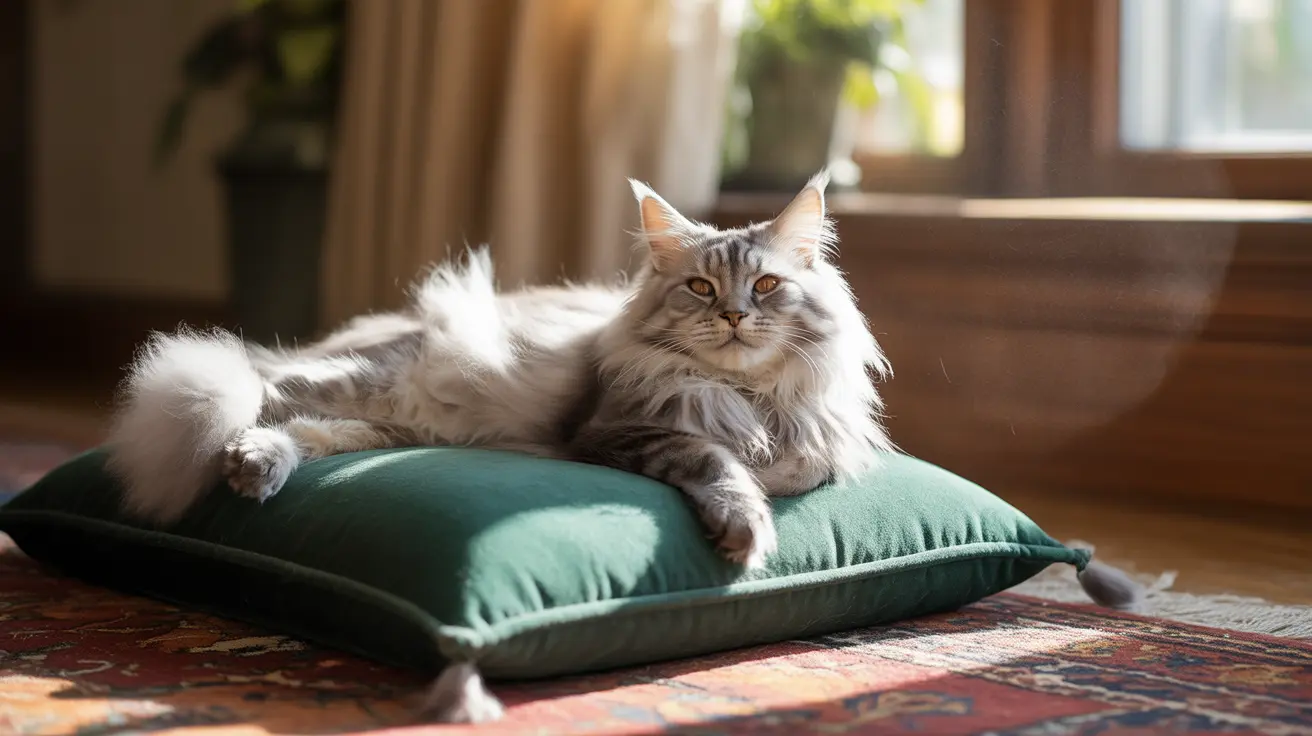If you've noticed your cat's belly looking unusually swollen despite them behaving normally, you're not alone. A bloated appearance in cats can stem from various causes, ranging from simple dietary issues to more serious medical conditions. Understanding why this happens and when to seek veterinary care is crucial for your pet's health.
While it may be reassuring that your cat maintains their regular behavior, it's important to note that cats are masters at hiding discomfort. A bloated appearance, even without other symptoms, should never be ignored as it could indicate underlying health issues requiring attention.
Common Causes of Feline Bloating
Dietary-Related Bloating
One of the most common reasons for a bloated appearance is related to eating habits and dietary factors. Cats who eat too quickly often swallow air along with their food, leading to temporary stomach distension. Similarly, sudden changes in diet or food intolerances can cause gastrointestinal upset and bloating.
Medical Conditions
Several medical conditions can cause abdominal swelling in cats:
- Fluid accumulation (ascites) from liver, heart, or kidney disease
- Intestinal parasites
- Gastrointestinal obstruction
- Organ enlargement
- Tumors or masses
- Feline Infectious Peritonitis (FIP)
Signs to Watch For
Even if your cat seems normal, pay attention to these additional signs:
- Changes in appetite or water consumption
- Subtle changes in litter box habits
- Reduced grooming
- Less interest in play
- Unusual postures while resting
- Breathing changes
When to Seek Veterinary Care
While your cat may appear normal, certain situations warrant immediate veterinary attention:
- Sudden or rapidly developing bloat
- Hard or painful abdomen
- Progressive abdominal enlargement
- Any behavioral changes, however subtle
- Difficulty breathing
- Changes in eating or drinking habits
Prevention and Management
Several strategies can help prevent or manage bloating in cats:
- Feed smaller, more frequent meals
- Use slow-feed bowls for rapid eaters
- Maintain regular deworming schedules
- Gradually transition between different foods
- Keep potentially harmful objects out of reach
- Schedule regular veterinary check-ups
Frequently Asked Questions
Why does my cat look bloated but still act normal?
Cats are experts at hiding discomfort, so they may appear normal despite having underlying issues causing bloating. Common causes include overeating, air swallowing, parasites, or more serious conditions like fluid accumulation or organ disease.
What common causes can make a cat's belly appear swollen without obvious distress?
Common causes include overeating, rapid eating leading to air swallowing, parasites, constipation, and in unspayed females, pregnancy. Some medical conditions like organ enlargement or fluid buildup can also cause swelling without immediate signs of distress.
When should I worry and take my cat to the vet if it looks bloated but shows no symptoms?
You should seek veterinary care if the bloating is sudden, progressive, or persistent, even if your cat seems normal. Early intervention is crucial as some causes of bloating can become serious if left untreated.
How can rapid eating or diet changes lead to a bloated appearance in cats?
Rapid eating often leads to swallowing air (aerophagia), causing temporary bloating. Sudden dietary changes can disrupt the digestive system, leading to gas production and abdominal distension.
Can parasites cause a cat's abdomen to bloat even if it seems healthy and active?
Yes, intestinal parasites can cause bloating while cats maintain normal activity levels. Parasites can thrive and cause abdominal swelling without immediately affecting a cat's energy or behavior.
Remember, while it may be tempting to wait and see if your cat's bloating resolves on its own, consulting with a veterinarian is the safest approach to ensure your pet's well-being. Early detection and treatment of underlying causes can prevent more serious complications and ensure your cat maintains optimal health.






